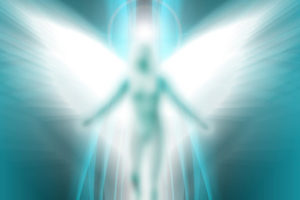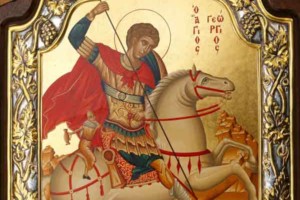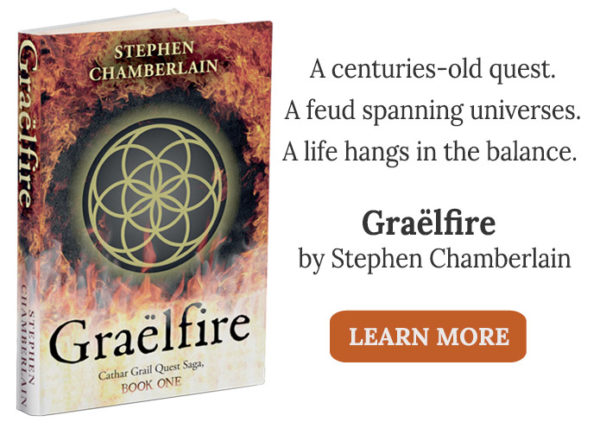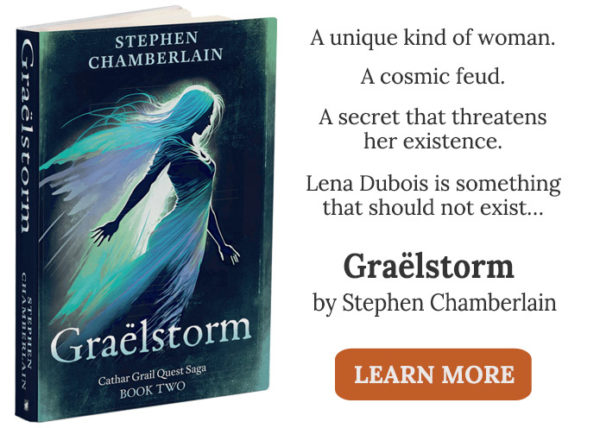
R is for Romance (in Fiction)
“Love is a smoke raised with the fume of sighs.” — William Shakespeare Fiction and romance go together like bread and butter. They make up some of our best-loved stories. But when it comes to genre — Romance with a capital R — the entire plot must revolve around the love interest. What’s more, a…Read More

Fictional Characters: Archetypes and Stereotypes
“I imagine hell like this: Italian punctuality, German humour and English wine.” ― Peter Ustinov The world has four cardinal bearings: north, south, east and west. So powerful is their grip on our psyche that they convey more than direction. They give us a sense of place. They shape our myths and cultures. I was…Read More

Sense of Wonder: Evoking the Numinous
“Watch the stars, and see yourself running with them.” — Marcus Aurelius Numinous is an adjective derived from the Latin word Numen, meaning divine will. In a more secular context, things that are numinous have an otherworldly quality that arouses a sense of wonder in magic or the supernatural. The Other The fun of fantasy…Read More

Suspension of Disbelief: Bridging the Credibility Gap
“It doesn’t stop being magic just because you know how it works.” ― Terry Pratchett, The Wee Free Men Fantasy is a genre steeped in the supernatural. It is literature of imagination, the realm of possibility. There can be wizards and elves, vampires and dragons, tyranny and malevolence. Fantasy places no bounds on the invention…Read More

Spring Fever: The Vernal Equinox
“Spring is the time of plans and projects.” — Leo Tolstoy Few plants herald the coming of spring like the wild primrose. It begins flowering in March and always brings a smile to my face. Considered sacred by Celtic people, it drives its name from “primus,” which means “first” in Latin. In olden times, the…Read More

Behind the Mask: Carnival in Luzern
“It is in middles that extremes clash, where ambiguity restlessly rules.” — John Updike Everyone has heard of Carnival, but unless you’ve experienced it in Switzerland, you ain’t seen nothing! Carnival (or Fasnacht) is a wild celebration here, and a quintessential encounter with liminality. Social theorists describe liminality as a transitory phase between the past…Read More

World-building: The Power of Symbols in Fiction
“[The universe] cannot be understood until we have learnt the language and become familiar with the characters in which it is written. It is written in mathematical language, and its characters are triangles, circles and other geometrical figures.” – Galileio Galilei (1564 – 1642) Symbols are all around us. From the commercial and political to…Read More

Liminal Thresholds: The Spaces Between
“Every exit is an entry to somewhere else” — Tom Stoppard Each December, I look forward to the week between Christmas and New Year. The world closes in on itself. Everyday life pauses and routines are suspended, giving time for reflection. This lull is a liminal time — an in-between stage when we transition from…Read More

Quest Stories as a Genre
“Many the men whose cities he saw, whose ways he learned.” — Homer, The Odyssey Quest stories have one thing in common: a search to find, control, or destroy something. The hero will do anything to achieve their goal. The villain will lie, cheat, or kill to thwart them. Think of the hunt for El…Read More

World-building: The Gnostic Creation Myth
“God is not the author of all things, but only of good.” – Plato Graëlfire’s world-building is not intended to endorse a religious view, though it draws inspiration from Gnostic creation myth. Gnosticism is a theology that predates Christianity. It is an esoteric doctrine that aims to explain the presence of evil and suffering within…Read More


